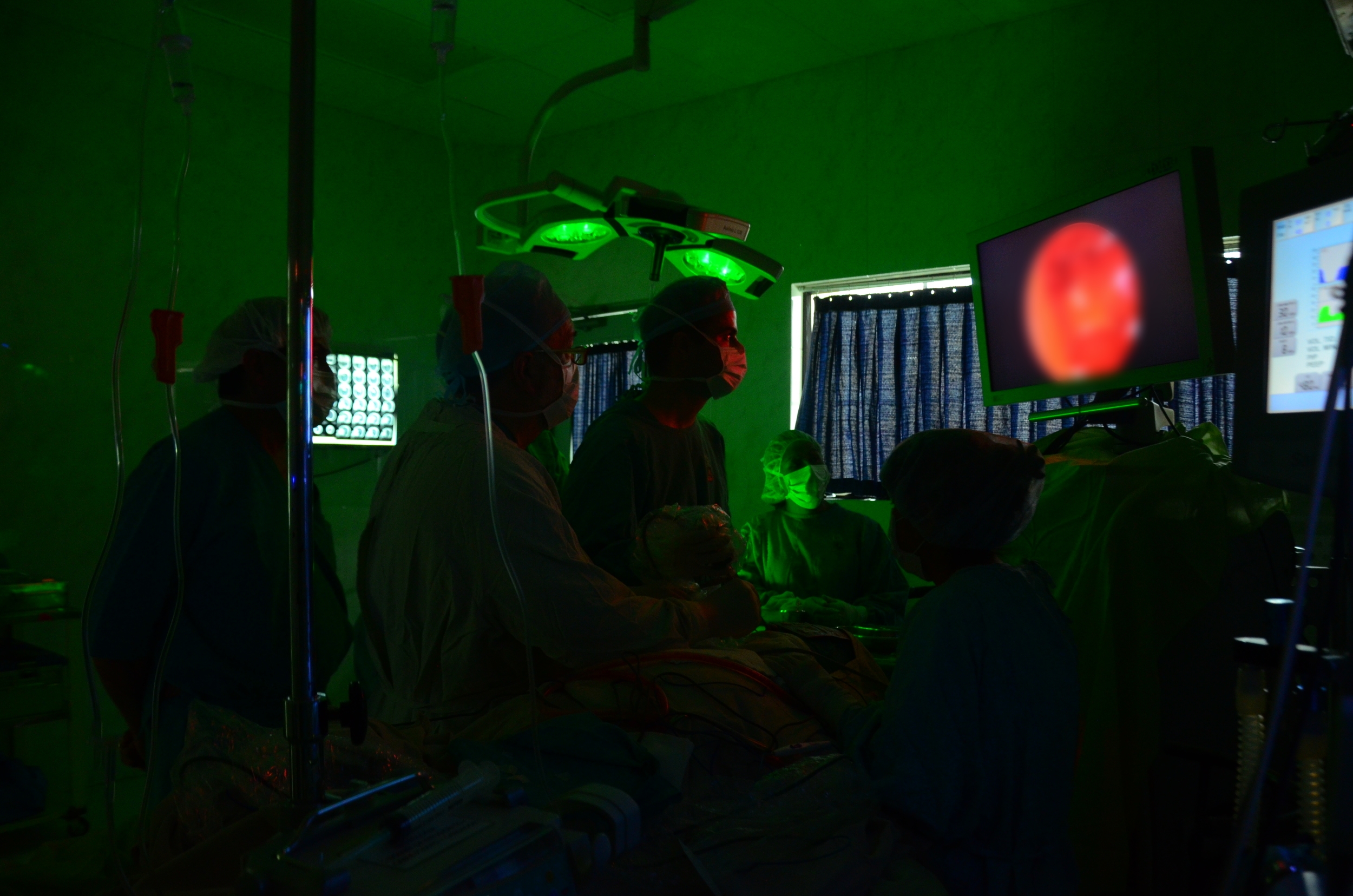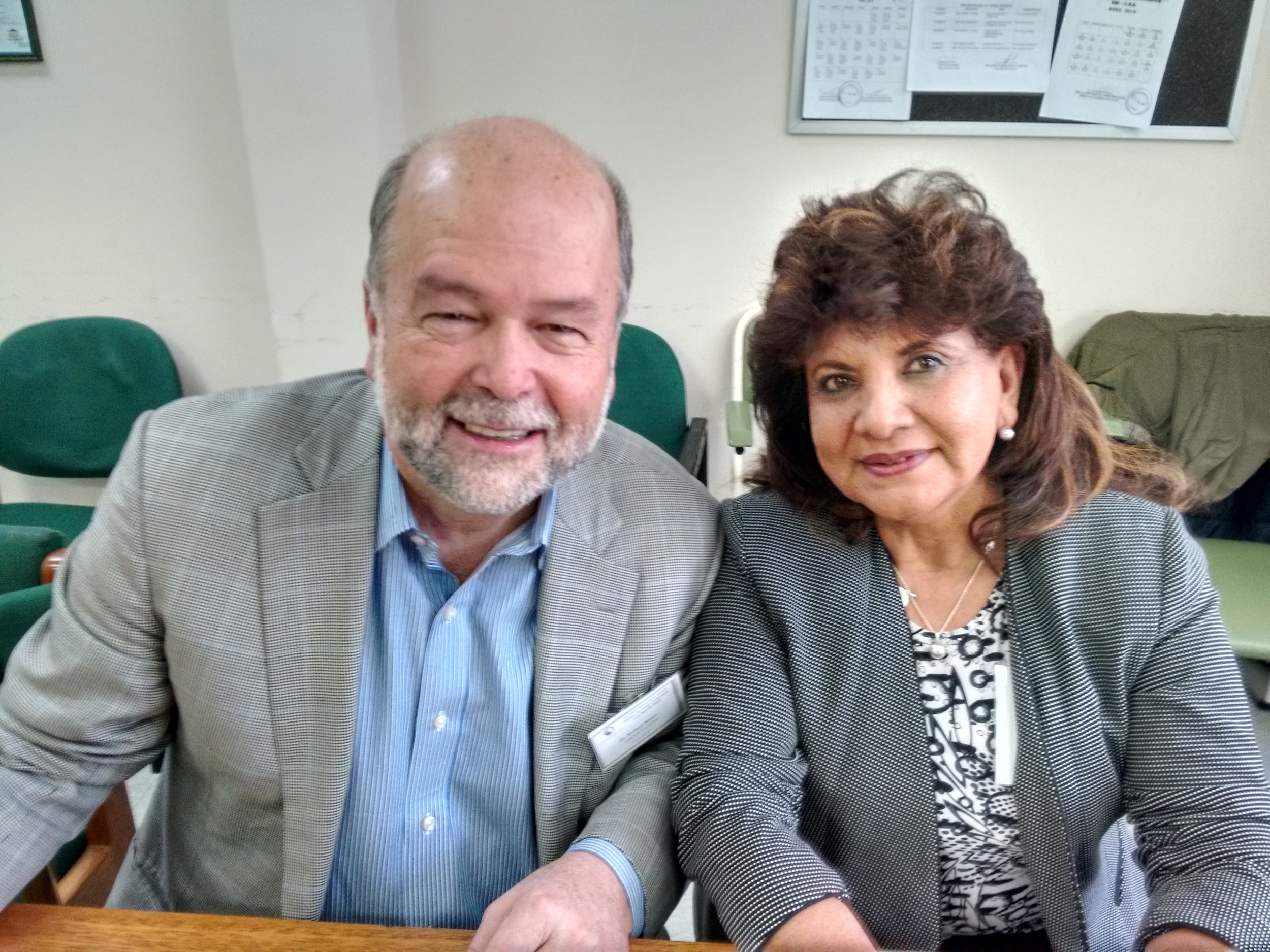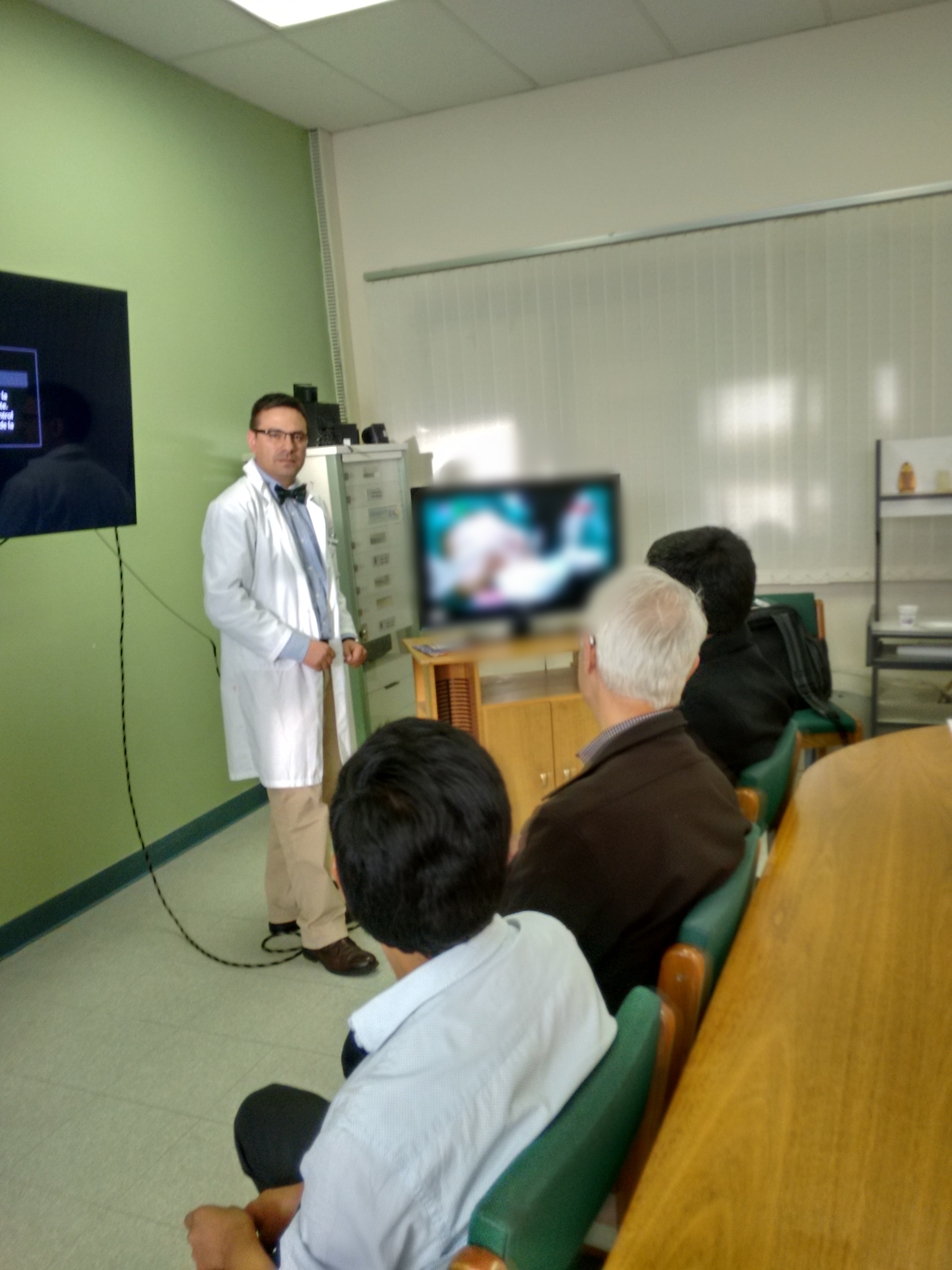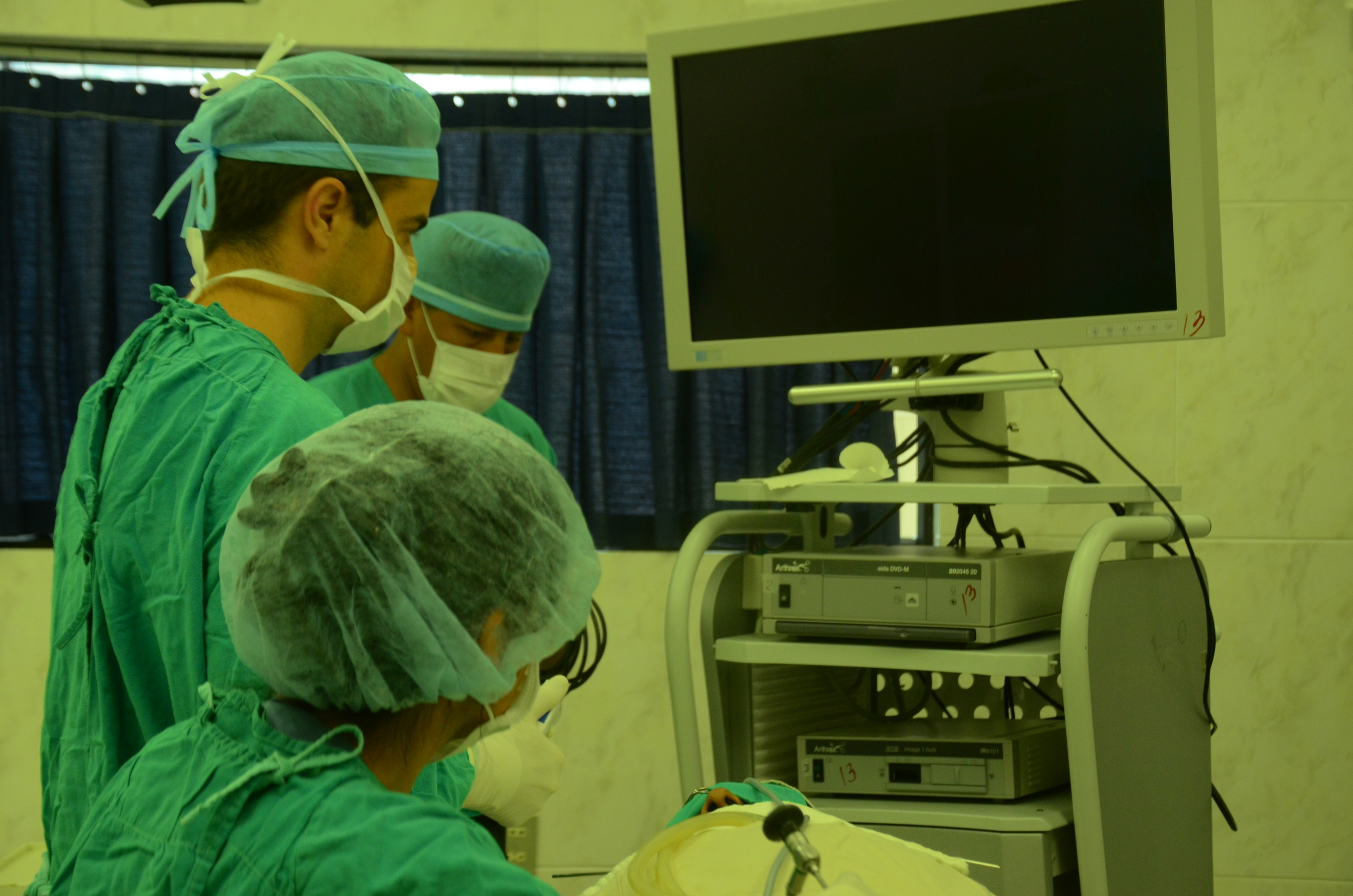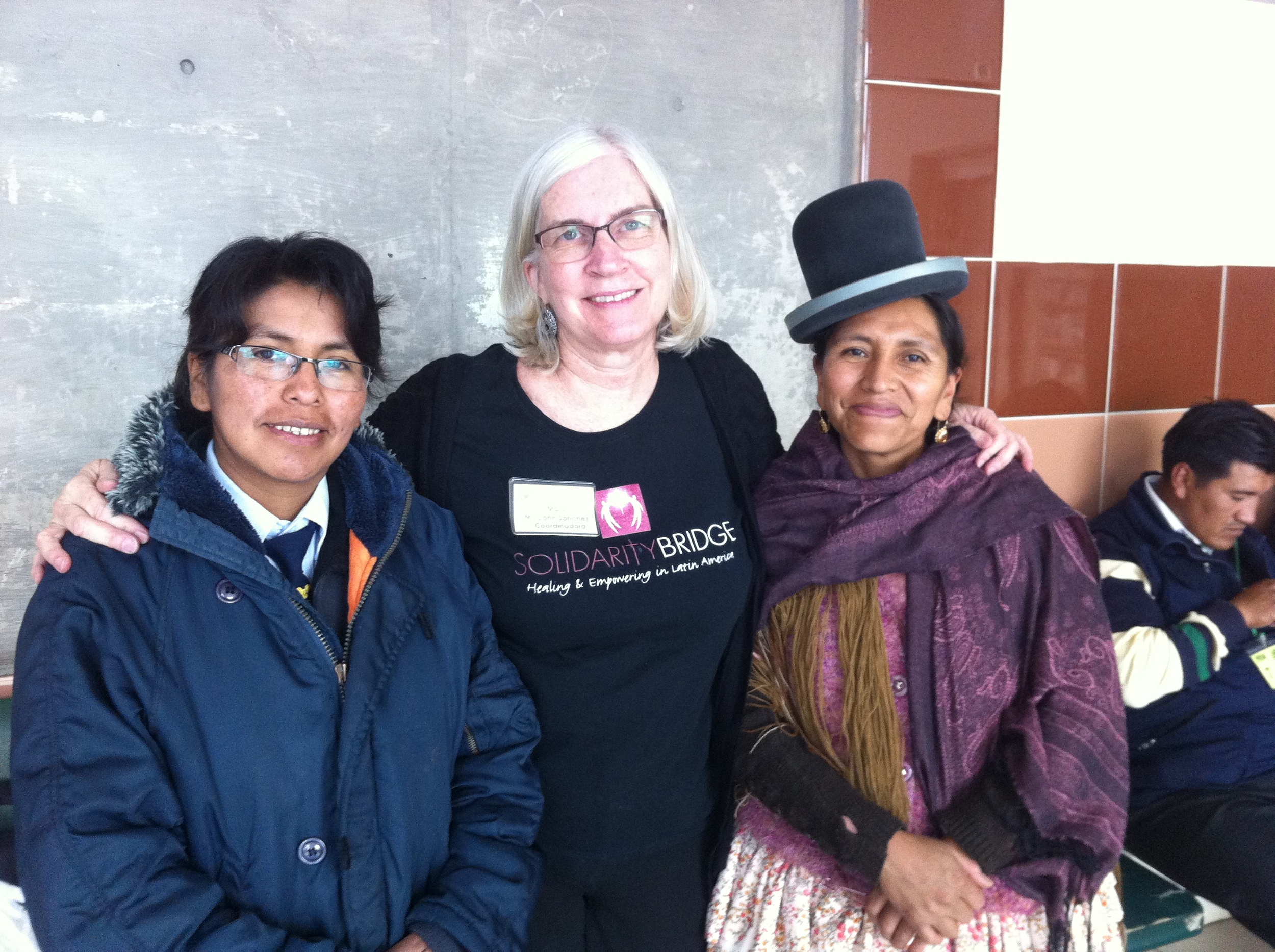Successful Completion of the IDN International Endoscopy Course in La Paz
By Mary McCann Sanchez
“The course was excellent and demonstrated the importance of training opportunities in Bolivia. Many questions I had were clarified by the extremely capable faculty who led this course.”
Course participants L-R: Dr. Marco Fernandez, Dr. Elizabeth Chavez, Dr. Edmundo Antezana, Dr. Edwin Mayhua
With these words, a neurosurgeon from Santa Cruz assessed the relevance of the transnasal surgery training he received at the III International Course on Endoscopic Skull Base Surgery, held this week in La Paz. A total of 19 medical professionals -- 15 neurosurgeons (including three residents) and four ENTs -- completed the course, which combined lectures, observation of five surgeries on patients with pituitary adenoma, and energetic post-surgical discussions on the procedures observed.
Participants benefited greatly from the expertise of the four-member international faculty, but also from the diversity of neurosurgery approaches and experiences among the participants and the hospitals where they work, which include public and private hospitals in La Paz, Santa Cruz, Cochabamba, Tarija, Trinidad, and Oruro, Bolivia, as well as Lima, Peru.
Three of the course participants had participated in the groundbreaking Neurosurgery Boot Camp organized in October 2015 by the Institute for the Development of Surgery, Solidarity Bridge, and Puente de Solidaridad. “The Boot Camp experience was significant, and I can use everything I learned there and at this endoscopy course in my new position at the Children’s Hospital in Lima,” mentioned Dr. Edwin Mayhua. “This is my last month of residency, and my dream is to specialize in pediatric neurosurgery in the future.”
Dr. Elizabeth Chavez, an ENT from Cochabamba, scrubbed in for the fourth surgery. “I am anxious to work with my colleague Dr. Sergio Rojas from La Paz. It is important to have opportunities to share our skills and understand the strategies used.”
The demand for training in this field is growing. It is interesting to note that two-thirds of the course participants were first-time participants in Solidarity Bridge/Puente de Solidaridad activities. At the same time, good-bye handshakes with faculty and organizers of the course were accompanied by a repeating phrase: This course was important. Let’s stay in touch.
